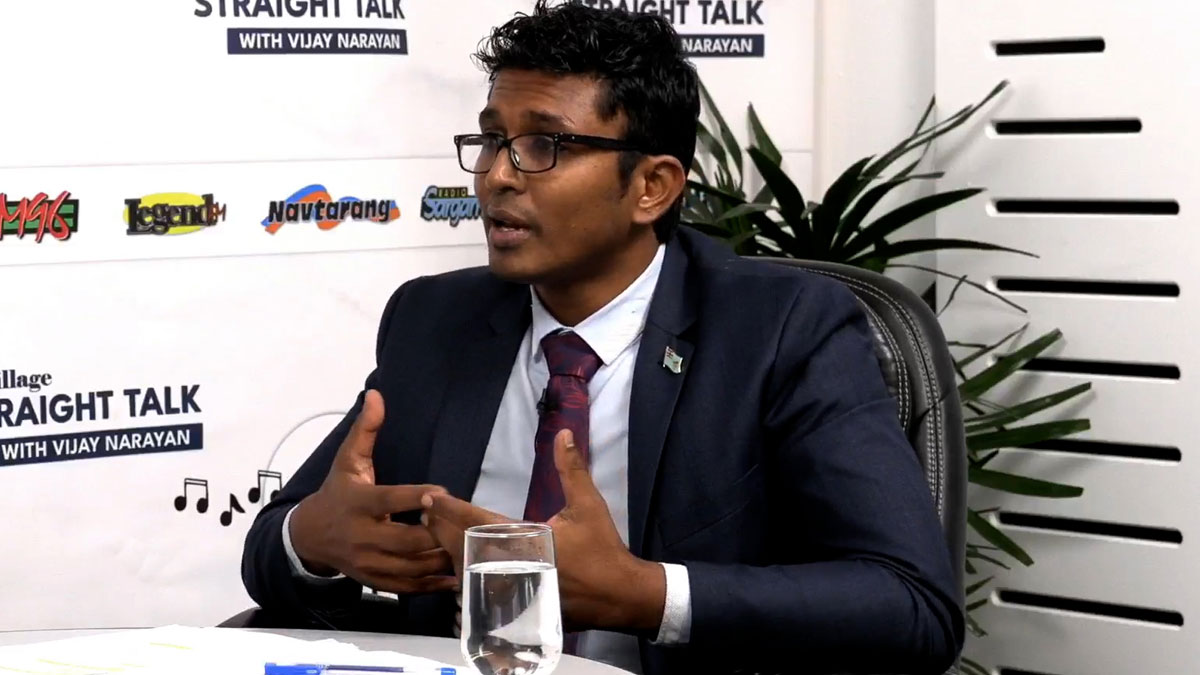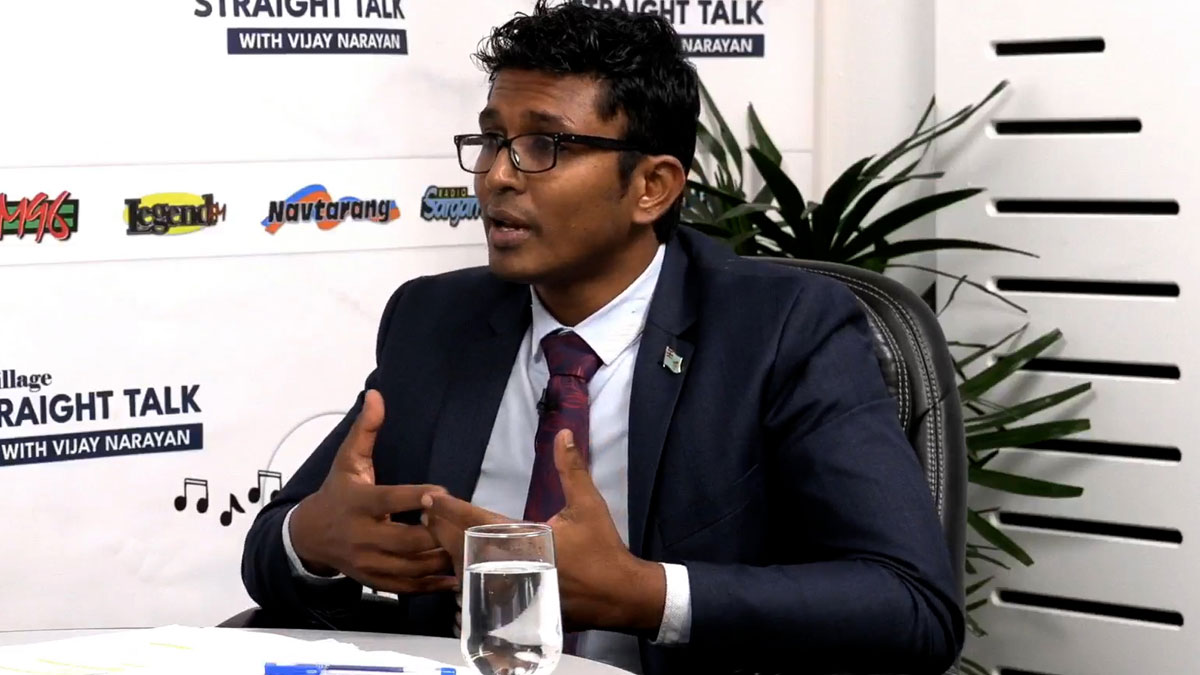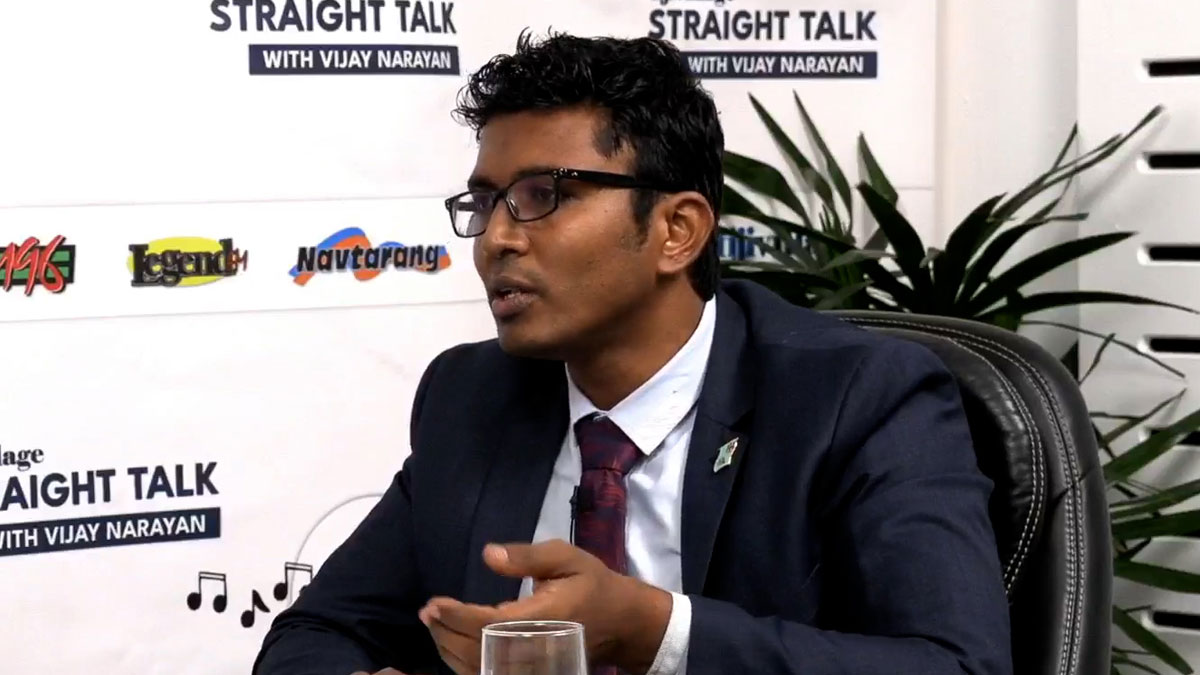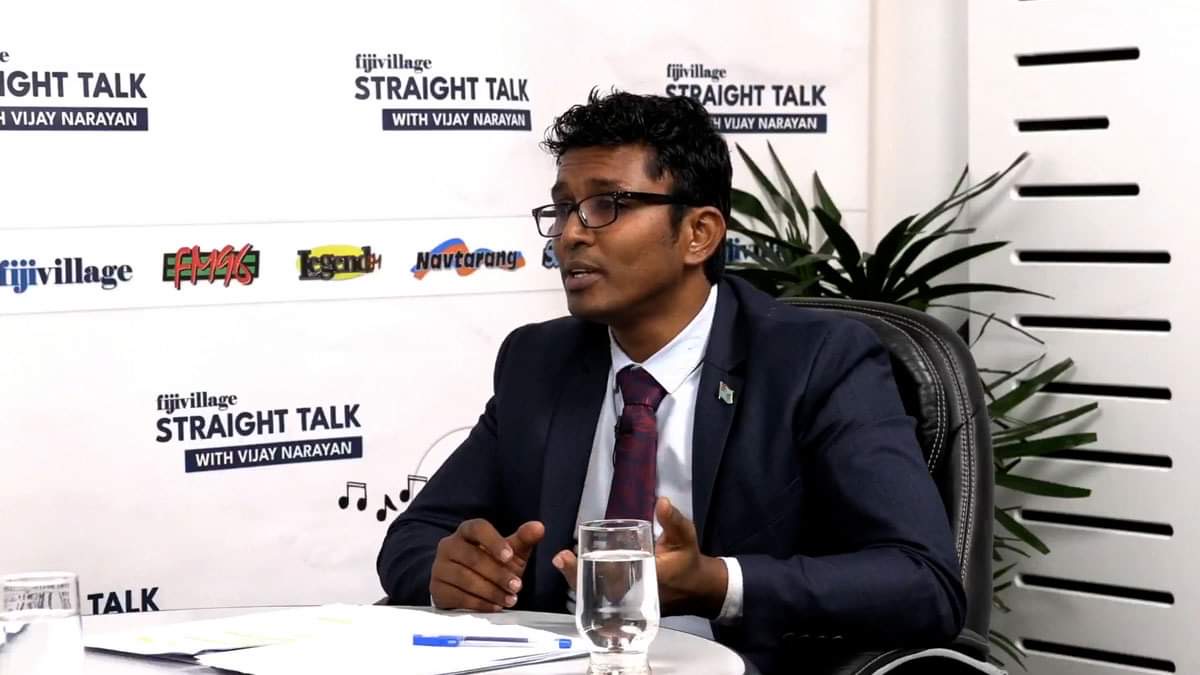
CEO of the Fijian Competition and Consumer Commission, Joel Abraham appears on fijivillage Straight Talk With Vijay Narayan

My salary is higher than the Prime Minister’s salary based on the technical nature of the work.
Those are the words of the CEO of the Fijian Competition and Consumer Commission, Joel Abraham when questioned on fijivillage Straight Talk With Vijay Narayan on whether he believes that based on the current situation faced by the country, his salaries and allowances and those of other CEOs funded by taxpayers through government institutions should be reviewed and reduced.
On fijivillage Straight Talk With Vijay Narayan, we have questioned the Prime Minister, the Deputy Prime Minister and Minister for Finance on the need to look at the exorbitant salaries and allowances being paid as tax dollars are being used to pay for this.
Reductions have already been announced for the Prime Minister, Ministers and MPs.
Exorbitant salaries of CEOs funded by taxpayers have also been highlighted where this was not determined by a Higher Salaries Commission, that was disbanded by the Bainimarama led government.
The salaries of some of these CEOs are even higher than the Prime Minister’s salary.
Abraham says he is open to the market review.
We are currently in the process of looking through the FCCC financials. The Prime Minister’s salary is $328,000.
You can watch the full Straight Talk interview on our website, fijivillage.

100 percent, we need to review the Fijian Competition and Consumer Commission.
Those are the comments of the FCCC CEO, Joel Abraham when questioned on fijivillage Straight Talk With Vijay Narayan on whether there are a a lot of loopholes in the FCCC Act which was the Commerce Commission Decree 2010.
Abraham says our law is copied of the Australian Trade Practices Act of 1974, and the Commerce Commission Decree 2010 is now the FCCC Act.
He says while the decree came into force in 2010, it was a copy paste of three legislations which were the Counter Inflation Act 1975, Fair Trading Decree 1992 and the Commerce Act of 1998 put together to make the Commerce Commission Decree.
Abraham says they are reviewing the law with the assistance of the ADB and are in the consultation phase.
When asked on whether people who have paid exorbitant prices from August 1st can seek compensation, Abraham says this cannot be done under the law.
He also says the current law does not really say what constitutes a reasonable increase.
Full Straight Talk video below:

If you have been unfairly charged exorbitant prices from August 1st because of unscrupulous traders then unfortunately you cannot be compensated.
This has been confirmed by Fijian Competition and Consumer Commission CEO, Joel Abraham while speaking on fijivillage Straight Talk With Vijay Narayan where he says people cannot be compensated because the FCCC Act for non-price control items is purely dependent on the business.
He says it is a government policy decision after the FCCC’s recommendation on whether they should put something on price control.
Abraham says there is no law restricting anybody from increasing the prices.
He says if the prices are exorbitant, that would amount to unconscionable conduct which is an indirect breach of the FCCC Act which is a very general provision that says that a person in trade or commerce engaging in a conduct that is unconscionable but the conduct itself is not defined.
He says they have taken it to mean if there is an exorbitant increase, if there is misrepresentation around the price increase, if it is not tax related and the traders have increased it and are telling customers that this is because of change in VAT then they can prosecute.
He says unfortunately they are still bound by the requirements of the law and fortunately for the traders and sometimes unfortunately for the consumers, they still have to follow the process of natural justice.
Abraham says they will have to collect sufficient information to be able prove beyond reasonable doubt in court via criminal proceedings.
The CEO says they will have to collate data and disclose to the business whatever they have found, allow them chance to explain and the law also gives them certain lee-ways to say the increase is reasonable.
He says the law does not say what constitutes a reasonable increase and they have to collect enough information to go to court to prove the increase was unreasonable and that the process takes a lot of time.
When questioned on whether there are loopholes in the law, Abraham agrees that there are a lot of loopholes but the process to review that law has started.
Abraham adds while the law has consumer rights, it has consumer responsibilities as well.
You can watch the full Straight Talk interview below.
Stay tuned for the latest news on our radio stations

